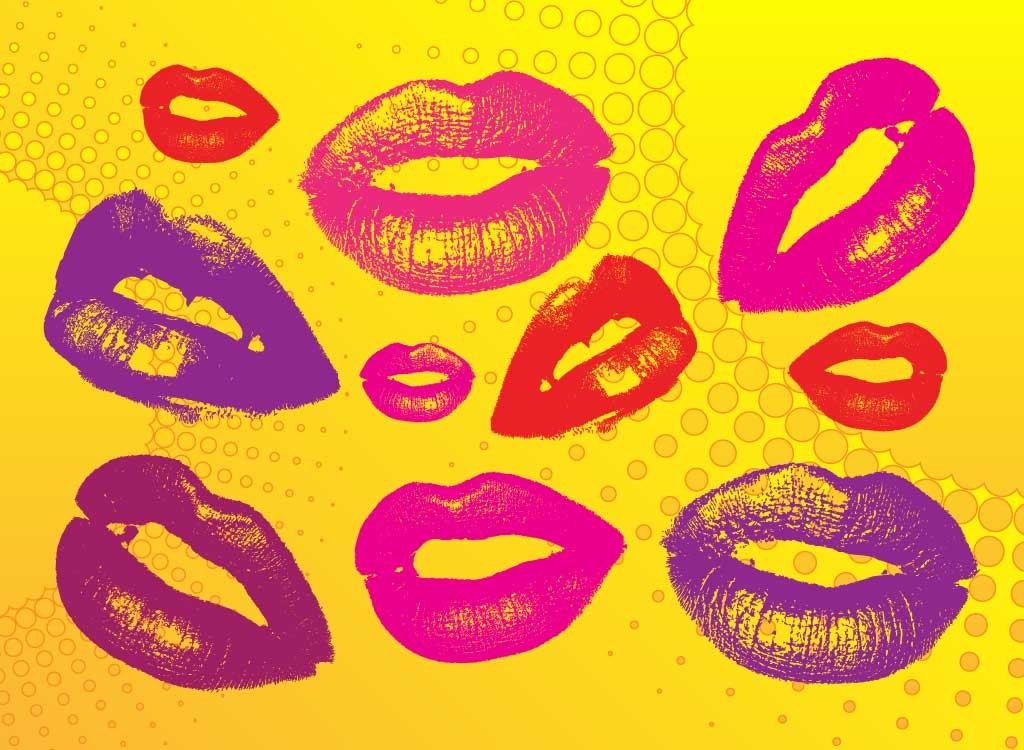ONE OF THE DISTINCTIONS OF SECOND-WAVE FEMINISM is its rebellion against traditional notions of femininity and the things that reinforce it, including beauty conventions. In many ways, I align with the second-wavers, and I’ve long associated any special efforts expected of women concerning appearance with objectification.
So I got a little excited recently with what seemed like the increasing normalization of the unadorned (or less-adorned) female face: the popularity of the “natural look,” the “I woke up like this” Tumblr, and #NoMakeupSelfie.
But intertwined with these seemingly-innocous trends are mixed messages about makeup and appearance. Writing for Time, Eliana Dockterman points out that many NoMakeupSelfie participants use special camera filters and lighting tricks to doctor their “natural” photos. In a similar vein, Katy Waldman voices her suspicion in Slate that, particularly among celebrities, bare-faced appearances “are less about not wearing makeup than pulling off not wearing makeup.” Perhaps Amy Schumer’s recent music video, “Girl, You Don’t Need Makeup,” sums it up best: You don’t need it – if you look a certain way to begin with.
These recent trends aren’t necessarily the second coming of the second wave. Women are still feeling the pressure to look a certain way and to make themselves if they don’t, and others expect it of them, too. The choice to eschew makeup can carry real consequences for a woman. Along with social and sexual pressure to “make ourselves presentable,” there’s evidence that women suffer professionally if they forego makeup. A small 2011 study found that participants (men and women both) judged pictures of women with varying degrees of makeup on to be more competent than the bare-faced photos of the same women; based on the results, one of the study’s authors was even able to advise women concerning what shade and gloss-level of lipstick to don depending on the effect they hope to have on co-workers. A 2013 survey of bosses in the U.K. found that 68% would be reluctant to hire a woman who showed up makeup-less to an interview; that same study revealed that 67% frowned upon women showing up to meetings without the stuff.
The second-wavers certainly haven’t won. Beauty standards are pervasive, affecting women not only internally, but on the level of their real-world prospects as well. I understand the pressure to wear makeup. What I haven’t been able to grasp is the idea that makeup is somehow empowering to women.
Some women say that they wear makeup for themselves – it makes them feel good; it allows them to present themselves how they wish. Writing for EliteDaily, De Elizabeth puts out a call: “Ladies, we should be wearing makeup for ourselves, not for the guys. Let’s… start striving toward our own satisfaction when looking in the mirror.”
To a limited extent, I understand this. Thanks to some particularly dark circles under my eyes, I was greeted for years by, “Are you sick?” “You look tired.” The final straw for me was being asked by a young woman if things were okay at home; she thought I had two black eyes. So I bought some cover-up. I feel better when my appearance doesn’t inspire concern.
But here’s where I get tripped up. Societal beauty standards are shoved down girls’ throats from a very young age on. I don’t think there’s a woman out there who isn’t in some way impacted by those standards. So it’s hard for me to see how a woman’s “own satisfaction” with her appearance, as Elizabeth put it, is not entwined with shitty messaging about how she should look, particularly if she requires lipstick, mascara, eyeliner, blush, or any other alteration/enhancement device to obtain satisfaction with her face. Our idea of beauty doesn’t form in a vacuum.
Perhaps we can find a response to this in third-wave feminism, which embraces the ideas of femininity, beauty, and sex appeal as tools for empowerment. The emphasis here is on agency: Women can choose to use sexuality and beauty toward their objectives, be it self-expression or social and political power. One third-wave subsect is even called “Lipstick Feminism,” attesting to its acceptance of makeup.
Teresa Riordan, author of Inventing Beauty, offers a controversial version of Lipstick Feminism: She sees makeup and fashion as ways of “manipulating,” “controlling,” and “beguiling” the male eye to one’s advantage. This just reads to me like the flipside of the troubling, unsubstantiated evolutionary psychology underpinning pick-up artistry (more on that here).
Troubling underpinnings aside, I have hesitations about the idea of wielding beauty, femininity, or sexuality as tools of empowerment. On her blog, The Beheld, Autumn Whitefield-Madrano says it better than I could: “I’m skeptical of the idea that using one’s sexuality is a legitimate route to authority. It might be effective sometimes, sure, but it’s forever dependent on the mercy of people with actual power.
Writing for Being Feminist, J.A. Fisher offers a potential response: “What critics of Lipstick Feminism ultimately try to do is ignore the necessity to make and acknowledge a distinction between a woman who chooses to sexualize her body, and the patriarchal, systematic, sexualization of all women’s bodies.” Further, she says, “It is important to have fashion, to act as a creative outlet in which to reject the ideas that fashion is for the patriarchal or the sexual gaze.” The idea emerges that there’s a form of attention-to-appearance that is dictated by the women creating their own fashion, not the men who are looking. There may be a way, then, of reclaiming tools typically used to enforce objectification, turning them into whatever a woman wants them to be — creative, artistic, fun, and even subversive.
The conclusions I’ve come to writing this piece are loose, but my two-part takeaway is as follows:
1) Many women feel they can’t leave their houses without wearing makeup for legitimate fear of social, sexual, and professional stigmatization. For these women, makeup is a tool for adapting to a bad situation, not a form of female empowerment. And I don’t judge or shame them; I have the privilege of living in a town where hairy armpits and bare faces on women are as common as the opposite, and I work from home (often in my pajamas). There’s no high horse to sit on where privilege reigns.
2) I have a better grasp on the idea of makeup as a potential form of creativity, self-expression, and even subversion of beauty standards. As a former high school art nerd, the idea of painting a face as I once did a canvas has its allure. Also, during those strange days, I flirted on occasion with using makeup and fashion as subversive elements. It took time, energy, and the courage to be seen that I don’t have much of now, but I can see something like empowerment in the sudden sparkly blue lipstick or those fuzzy colored pipe cleaners I wrapped around my pigtails in the shape of antennae. (Not that subversion has to be so drastic, but that’s my window into the idea.)
I’d love to keep the conversation going. Please share your thoughts, criticisms, perspective, or anything else below.

















